24 Jan 2022
Superhero hands that are transforming disabled childrens’ lives
“Since childhood I’ve been interested in robotics. I wanted to design and produce robotic hands, various implants. Of course, back then I never thought I would actually help give kids features of cartoon superheroes,” says Ilya Chekh.
In 2013 Ilya became a co-founder of Motorica – a company which produces hi-tech prosthetic arms for kids, using robotics and 3D printing.
“I was just 24 years old back then. Together with my partner Vasil Khlebnikov I was excited to start such a project, to be able to do something life-changing for so many people,” says Ilya.
He realised that kids with physical limitations were often ashamed of their disability, and he wanted to help them transform their lives so that they would feel more confident about themselves and betted adapted to the world they live in.
“And I thought, what if we can transform a hand prosthesis from just a medical device to something which gives a child superhero capabilities?”
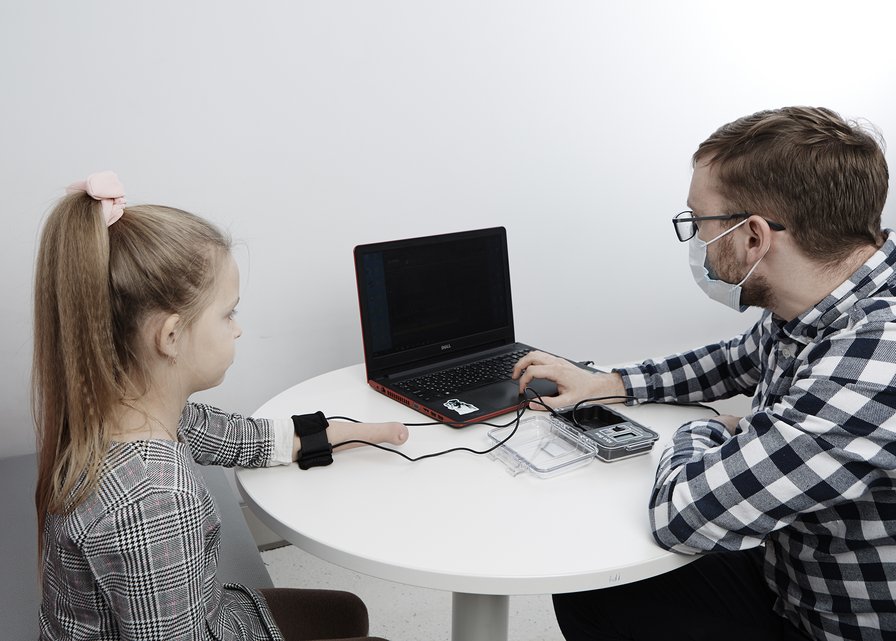
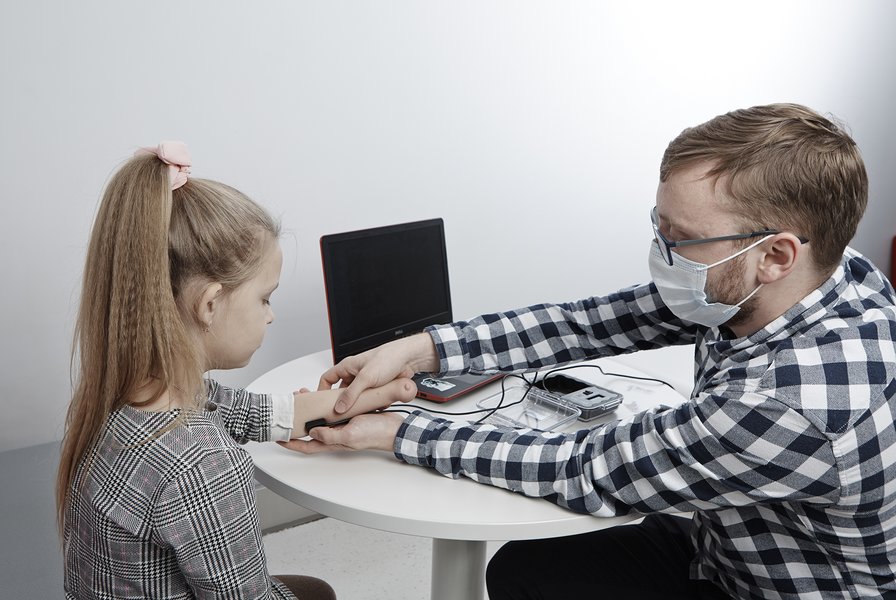
Taking advantage of technology
Ilya points out that production of prostheses in many countries is still widely based on technologies and perceptions from 30 years ago.
Motorica decided to make radical innovation a key aspect of its work.
“This was around the time when 3D printing became widely used. So we thought that would gives us a chance to make prostheses that are very similar to a real hand’s functionality. At the same time they can be customised and adjusted to the needs of kids,” explains Ilya.
“A kid with this prosthesis is no longer a person with limited movement. Their mechanical hand is faster and cooler than a usual human hand.”
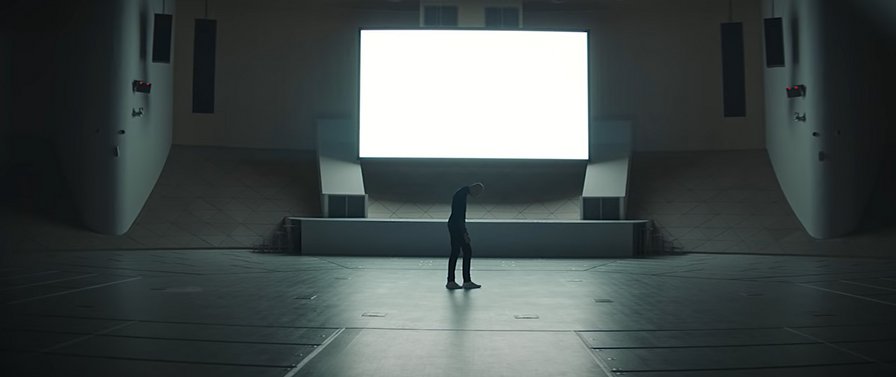
Prosthetic arms, produced by Motorica, can be supplemented with smart watches, action cameras, laser pointers, attachments for quadcopters and even augmented reality devices.
Each prosthesis can even get its own design, including a custom shape, colour or with a modern cartoon character on it.
“A kid with this prosthesis is no longer a person with limited movement. Their mechanical hand is faster and cooler than a usual human hand. And other kids become interested in them. The child is no longer physically disabled, but can show off and be the coolest kid on a playground,” notices Ilya.
To expand the capabilities of their prosthetic devices, Motorica teamed up with Beeline – VEON’s mobile operator in Russia.
“We wanted to develop a cloud platform which could gather technical telemetry, user activity data, and their physiological profile, store it in a most secure and depersonalized way, and apply advanced AI and big data analytics capabilities,” explains Ilya. “Beeline was an ideal partner for us as it has extensive experience in dealing with big data AI along with world-class communications expertise to record and store the data.”
Based on the data automatically collected by Beeline from the IoT prosthetic, doctors can track each kid’s progress and work specifically on improvements to gestures and moves that each individual most needs to focus on.
“It is exactly what VEON stands for, helping people to transform their lives.”
“Ilya brought this idea to us and we immediately loved it. We were impressed by the new approach to overcoming physical limitations, which Motorica is spreading through its philosophy. For us this is more than a start-up, it is an enterprise which we can help expand and generate great outcome for the children by working together. It is exactly what VEON stands for, helping people to transform their lives,” says George Held, Chief of Staff at VEON who was deeply involved with Motorica when previously the Chief Digital Officer of Beeline Russia.
The data recorded from the children’s prosthetic is called telemetry and is very useful for both Motorica and its patients for the maintenance of the prosthetic device’s maintenance. By looking at the telemetrics, Motorica specialists can predict possible breakdowns of devices and warn about the deterioration of batteries and sensors.
In addition to this, users of Motorica prosthesis can now enrich their experience by getting access to new features and gestures, which are constantly being developed and introduced. Such features can be installed remotely — thanks to its collaboration with VEON.
A company of the future
In 2015 Ilya and his partner were assembling prosthetic hands in their kitchen at night after work. Now their company produces over 100 prostheses per month including unique cases for kids who were previously refused due to the lack of suitable solutions. Every year Motorica introduces a completely new type of prostheses to its production line.
The latest model, due to appear in early 2022, is a bionic wrist prosthesis.
“This was a very challenging but very interesting project for us. We already produce bioelectric forearm prostheses, but they are rather big to make it easy to fit all necessary engines and sensors. Wrist prostheses are much smaller, but after some experiments we managed to fit all the necessary equipment in the limited space we had. So we are looking forward to presenting our newest device,” adds Ilya.
At the moment there are just a few companies in the world which specialise in the production of prosthetic hands for kids.
“This is a very complicated business,” explains Ilya. ”Kids grow up quickly, they get bored very quickly. So we understood the trick — they need not just a medical instrument — they want a gadget to be proud of. We decided to make an emphasis on that”.
Ilya says that his clients often help him to find power and inspiration for future projects.
“I think in the future we all will have something robotic in us, which ironically will make us more human.”
“A few years ago I got a photo sent to my mailbox. In it you see a young girl standing in the middle of a playground surrounded by other kids. The girl is raising her pink prosthetic hand in the air and others are looking at it with interest and admiration. So we made our idea real, but we are not going to stop there,” says Ilya. “I think in the future we all will have something robotic in us, which ironically will make us more human. So I believe that we are laying the foundations of the future”.
Through innovation and AI-enabled application, Ilya Chekh’s dream of enabling disabled children through superhero prosthetics has today become a reality and is in the process of transforming thousands of lives.
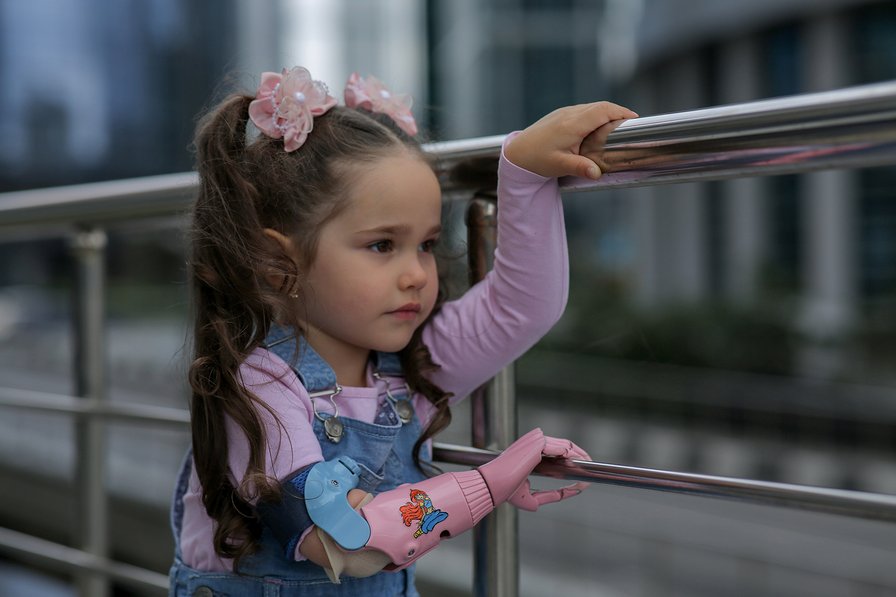
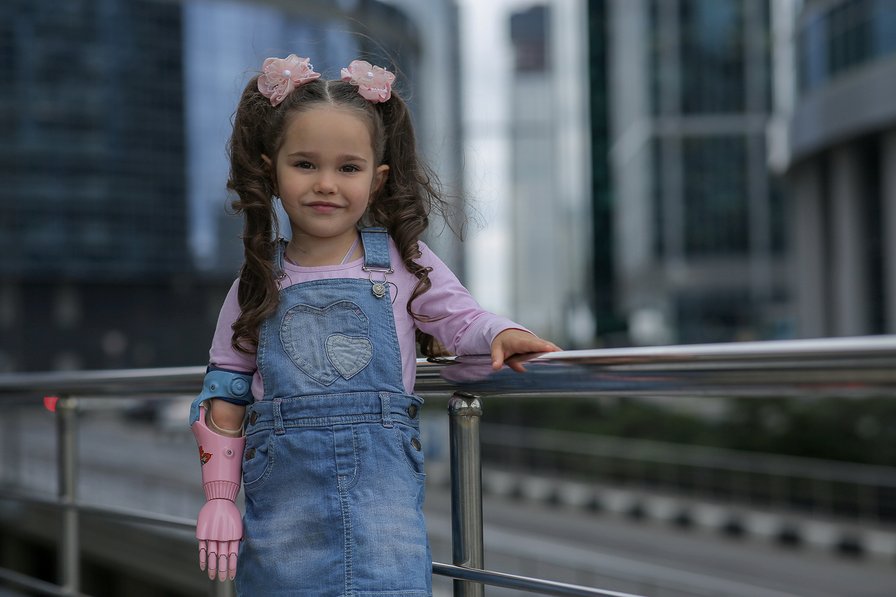
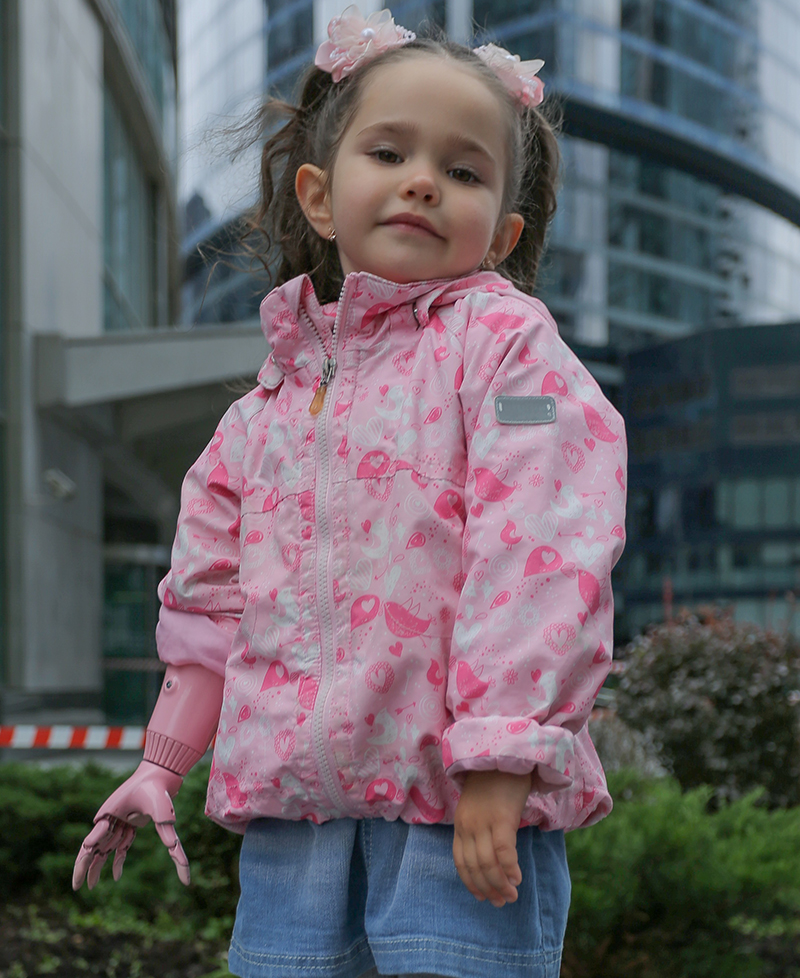
Contact information